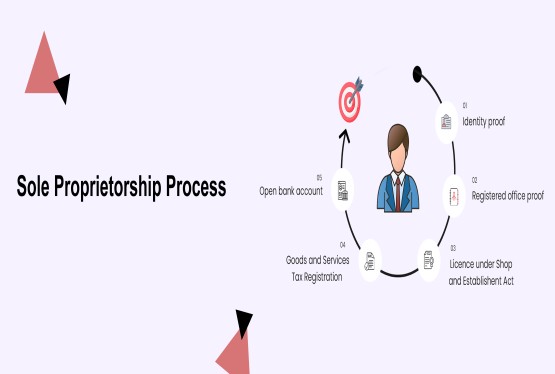Why Start-ups and Growing Companies Choose Private Limited Companies
Start-ups and growth-stage companies often prefer the private limited company structure because it allows outside funding to be raised easily, limits the liabilities of its shareholders, and enables them to offer employee stock options (ESOPs) to attract top talent and companies are also required to hold board meetings as per Section 173 and 174 where every company shall hold the first meeting of the Board of Directors within thirty days of the date of its incorporation and thereafter must be held at least four times a year, with no more than 120 days between meetings and file annual returns in form AOC–4, MGT-7A including DPT-3 applicability if any with the Ministry of Corporate Affairs (MCA), which improve their credibility over LLPs or general partnerships.
Features of a Private Limited Company
-
For Businesses Raising Funding: Fast-growing businesses that intend to raise funds from venture capitalists (VCs) are best suited to register as private limited companies and this structure enables the inclusion of investors as shareholders and allows them a seat on the board of directors. In contrast, LLPs would require investors to become partners, and One Person Companies (OPCs) cannot accommodate additional shareholders. If funding is a priority, a private limited company becomes a clear choice.
-
Limited Liability: In business structures like general partnerships, partners are personally liable for all business debts. If such debts cannot be repaid, partners may need to use personal assets. However, in a private limited company, the liability is limited to the capital invested, protecting the personal assets of the directors.
-
Start-up Compliance Requirements: Though a private limited company is a preferred structure for scaling up, it comes with increased compliance obligations and these include statutory audits, annual filings with MCA with the Registrar of Companies (RoC), filing of income tax returns, quarterly board meetings, maintenance of minutes, and other MCA requirements. Businesses must be prepared to manage these compliance tasks efficiently.
-
Taxation: It is a misconception that private limited companies always enjoy significant tax advantages. While some industry-specific incentives may apply, companies are taxed at a flat rate, and other levies such as Dividend Distribution Tax (DDT) and Minimum Alternate Tax (MAT) also apply. Compared to an LLP, the overall tax burden may be higher in some scenarios.
Features of a Limited Liability Partnership (LLP)
-
Start-up Suitability: An LLP is a preferred structure for entrepreneurs running non-scalable or service-oriented businesses that do not intend to raise equity funding. It combines key features of a private limited company and a general partnership, offering limited liability while maintaining structural simplicity.
-
Limited Liability Protection: Just like a private limited company, an LLP offers protection against business losses by limiting the partners’ liabilities to their agreed contribution. Moreover, each partner is protected from the negligence or misconduct of other partners.
-
Lesser Compliance Burden: The compliance requirements for LLPs are minimal. For example, audits are only mandatory if turnover exceeds a specific threshold if its turnover exceeds Rs. 40 lakhs or its contribution exceeds Rs. 25 lakhs in any financial year. Structural changes are simpler and require fewer filings with the RoC. This makes LLPs easier and more cost-effective to manage in the early stages of business.
-
Tax Advantages: LLPs offer considerable tax benefits, particularly for profit-making service businesses. No surcharge is levied on profits beyond a certain threshold, and there is no Dividend Distribution Tax. Loans to partners are also not treated as taxable income.
-
No Cap on Partners: Unlike private limited companies that are restricted in the number of shareholders, LLPs have no cap on the number of partners. This is ideal for businesses, such as advertising or consultancy firms, where many professionals may come together to operate under a single entity.
LLP for Bootstrapped Businesses in the Service Sector
Service-based start-ups such as consultancies, legal firms, tech services, digital marketing, or design agencies, often operate with limited capital and do not seek equity investment in the early stages.
For such businesses, LLP is an ideal fit. It provides:
-
Legal recognition and limited liability
-
Low compliance workload
-
Tax efficiency
-
Operational flexibility
How Compliance Calendar LLP Helps You Start Right and Scale Smart
At Compliance Calendar LLP (CCL), we understand that every business is unique especially when you're bootstrapping and planning for growth.
For service-based start-ups and professional firms, an LLP is often the most practical and cost-efficient way to start operations with full legal recognition and limited liability.
Our Role in Your Business Journey
Strategic Advisory for Choosing LLP Structure
We begin by understanding your business model, goals, and resource constraints. If you're starting small and funding isn't an immediate requirement, we help you incorporate your business as a Limited Liability Partnership (LLP) offering all necessary guidance on partners’ roles, capital contribution, and compliance requirements.
End-to-End LLP Registration Support upto LLP Deed form 3 filing
CCL handles the entire incorporation process, including:
-
Name reservation through RUN-LLP
-
Drafting and filing the LLP Agreement
-
DSC and DIN procurement
-
Filing of Form FiLLiP and Form 3
-
PAN, TAN, and GST application if needed
We ensure smooth interaction with the Ministry of Corporate Affairs (MCA) and deliver timely registration with proper documentation.
Post-Incorporation Compliance & Annual Filings
Once your LLP is registered, we continue to assist with:
-
Maintenance of financial records
-
Preparation and filing of Form 8 and Form 11
-
ITR filing for the LLP and its partners
-
DPIN KYC and RoC updates
We ensure you meet all statutory deadlines and remain fully compliant, helping you build a strong and credible operational foundation.
Planning for Future Conversion to Private Limited Company
As your business grows and funding needs evolve, we guide you through the strategic transition from LLP to Private Limited Company. This includes:
-
Advising on timing and readiness for equity-based structuring
-
To check all legal and tax efficiency in the conversion
-
Managing MCA filings and procedural formalities under Section 366 of the Companies Act, 2013
-
Supporting with drafting shareholder agreements, ESOP schemes, and investor onboarding, if applicable












_crop10_thumb.jpg)





_crop10_thumb.jpg)




























-Form_crop10_thumb.jpg)

_crop10_thumb.jpg)























_learn_crop10_thumb.jpeg)
































_crop10_thumb.jpg)

_crop10_thumb.jpg)





















_crop10_thumb.jpg)















_for_Foreign_Directors_learn_crop10_thumb.jpeg)




_Act,_2015_learn_crop10_thumb.jpg)



































_learn_crop10_thumb.jpg)









































